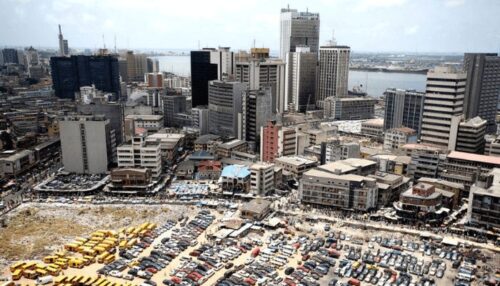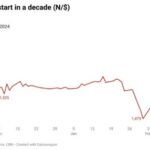
Confidence among Nigerian manufacturers experienced a modest improvement in the fourth quarter of 2024, largely driven by increased consumer spending during the festive season. However, persistent economic challenges continue to weigh on the sector, limiting the extent of growth.
Manufacturers’ Confidence Sees Marginal Growth
The Manufacturers CEOs Confidence Index (MCCI), compiled by the Manufacturers Association of Nigeria (MAN), edged up by 0.5 points in Q4 2024, rising to 50.7 points from 50.2 points recorded in the previous quarter.
On a year-on-year basis, however, the index reflected a decline, dropping by 1.1 points from 51.8 points in Q4 2023.
According to MAN’s Q4 report, improvements were observed in current business conditions, employment levels, and production output. This progress was primarily attributed to the moderate increase in consumer demand associated with the holiday season.
Challenges Persist Despite Gains
Despite the slight improvement, the report noted that the three key indicators—business conditions, employment, and production levels—remained below the 50-point benchmark. This suggests that manufacturers are still grappling with economic difficulties.
According to MAN, multiple factors have hindered operations, including:
- High costs of raw materials
- Soaring energy and logistics expenses
- Persistently high exchange rates, interest rates, and inflation
These challenges have created an unfavorable business environment, preventing stronger growth within the manufacturing sector.
The MCCI operates on a 50-point threshold—readings above 50 indicate economic expansion, while values below 50 suggest deterioration in business conditions.
Forecast for Q1 2025
Looking ahead, the report projects a slight dip in manufacturers’ confidence during the first quarter of 2025. While the index is expected to remain above 50, the anticipated figures indicate a moderation in optimism.
Key projections include:
- Overall business confidence declining from 56 points to 53.2 points
- Employment outlook decreasing from 53.8 points to 53 points
- Expected production levels slightly falling from 54.3 points to 54 points
Although these figures point to a slight slowdown in momentum, manufacturers are still moderately optimistic. Their confidence is supported by expectations of a more stable exchange rate, a pause in interest rate hikes, a gradual decline in energy costs, and the anticipated enactment of favorable tax reforms by Q1 2025.
Sectoral Confidence: Mixed Performance Across Industries
The report highlights divergent trends across various manufacturing sub-sectors. Out of ten industry groups, confidence improved in seven, while three recorded contractions.
The three struggling groups include:
- Basic Metal, Iron & Steel
- Electrical & Electronics
- Non-Metallic Products
A major factor affecting these industries is the delayed commencement of operations at the Ajaokuta Steel Company and the Aluminum Smelter Company. As a result, businesses in these sectors remain heavily reliant on imported metallic materials, making them particularly vulnerable to forex volatility.
Regional Confidence: Some Zones More Resilient
Confidence levels among manufacturers also varied across industrial zones. Several key regions recorded index scores above the 50-point mark, indicating stable or improving conditions. These zones include:
- Ikeja
- Kwara/Kogi
- Apapa
- Imo/Abia
- Ogun
- Abuja
- Edo/Delta
- Cross River/Akwa Ibom
- Oyo/Ondo/Ekiti/Osun
However, among these resilient zones, four witnessed declines, while five reported improved confidence.
Key Factors Influencing Regional Trends
Despite the challenging economic environment, manufacturers in Abuja, Apapa, Ikeja, Ogun, and Oyo/Ondo/Ekiti/Osun benefited from:
- A relatively stable exchange rate
- Seasonal increases in consumer spending
Conversely, manufacturers in Kwara/Kogi, Anambra/Enugu, Imo/Abia, and Edo/Delta faced more severe pressures. The report attributes the weaker confidence in these regions to:
- Sharp increases in electricity tariffs
- High borrowing costs
- The impact of exchange rate fluctuations on shipping expenses
Conclusion: Modest Optimism Amid Structural Challenges
While manufacturers’ confidence in Nigeria’s economy saw a marginal improvement in Q4 2024, structural issues such as high operating costs and forex volatility continue to hinder stronger growth.
Looking forward, expectations for Q1 2025 remain cautiously optimistic, with manufacturers hoping that stabilized exchange rates, policy reforms, and energy cost reductions will provide some relief. However, unless long-term solutions are implemented, manufacturers will likely continue to navigate a difficult business landscape.


